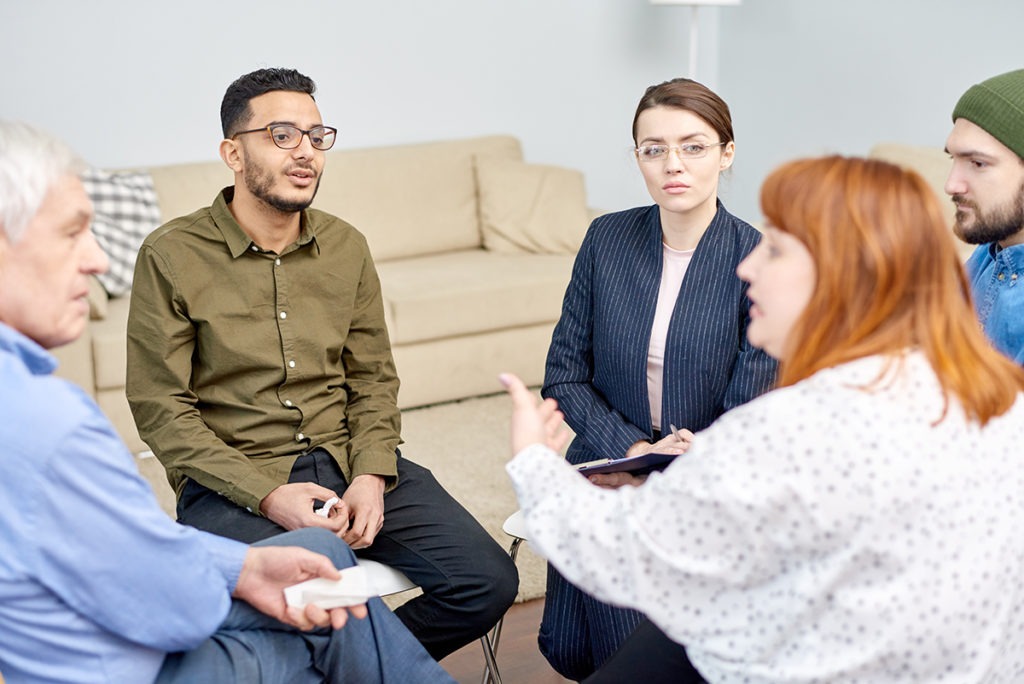Like the song says, breaking up is hard to do. A breakup can be even harder when you’re leaving a relationship because your partner can’t shake off the long shadow cast by past addiction. If you are dating an addict or married to someone who is still caught up in a relapse cycle, it can be hard. It also hurts if they choose their addiction over you. You want to support them through their illness, but you also know their addiction is taking a toll on you. How do you know whether to stay or go?
Couples counseling can help you see your relationships from a new perspective. Find an addiction treatment center near you for counseling that take substance use disorders into account.
Is Addiction a Deal-Breaker for Relationships?
Dating is hard enough as it is. When you dream of finding love, you might not have imagined dating an addict. Despite your plans, you may fall in love with someone struggling with substance abuse. Like most people, you want a romantic relationship that is healthy. Does dating an addict mean you can’t have a healthy relationship? Does falling for someone with a drug or alcohol history mean you have landed in a relationship with a bad person? No, it doesn’t. But it does mean that your relationship survival may require extra vigilance because drugs and alcohol can take over a person’s life.
What It’s Like to Love People in Recovery
An individual in recovery may be one of the most aware people you will meet. If they’ve been in recovery for a while, they are often:
- Involved in continuing care
- Active in 12-step programs
- Aware of ways to stay clean and sober
- Experienced with treatment programs or drug rehab
- Working on their mental health, often through therapy sessions
- Practicing coping skills to stay clean
On the other hand, there are some inherent risks of being in a relationship with someone in recovery:
- Those in recovery can be pulled back into using and may relapse
- A person in recovery may have chronic health problems
- They may refuse to enter, or return to, addiction treatment
- They may be more prone to addiction after medical problems or surgery, such as opiate addiction
- People in recovery may be more vulnerable to process addictions like gambling addiction or sex addiction.
It is important to set boundaries that keep you and your relationship as healthy as possible, especially if you are struggling with addiction yourself.
When You Should Consider Leaving a Partner Struggling with Addiction
A history of addiction doesn’t have to be a deal-breaker, but there are several signals that your relationship is unhealthy. This is particularly true if you’re dating someone who is in active addiction with no recovery plan in place. In these cases, you may both be better off in a different situation for a while:
- You’re caught up in enabling behavior
- Your partner is emotionally unavailable to you
- You’ve lost hope things will get better
However, in some cases, people working toward addiction recovery can be strong, emotionally aware partners. Here are a few signs your relationship is headed in the right direction:
- You’ve taken steps to avoid enabling
- Your partner has a solid relapse prevention plan
- You’re both receiving the support you need
Get the Help You Both Need at The Right Step
Making the decision to stay or let go of a relationship with an addicted partner can be extremely difficult. Only you can know when you’ve reached your breaking point. Whatever you decide, give yourself permission to take care of yourself. That way, you’ll be able to let go and move on or stay and provide healthy support for your loved one in recovery, without sacrificing your own needs. Make sure you have the right mental health services and addiction recovery resources to support you both for the long haul. Reach out to The Right Step at 17135283709 to find help.






